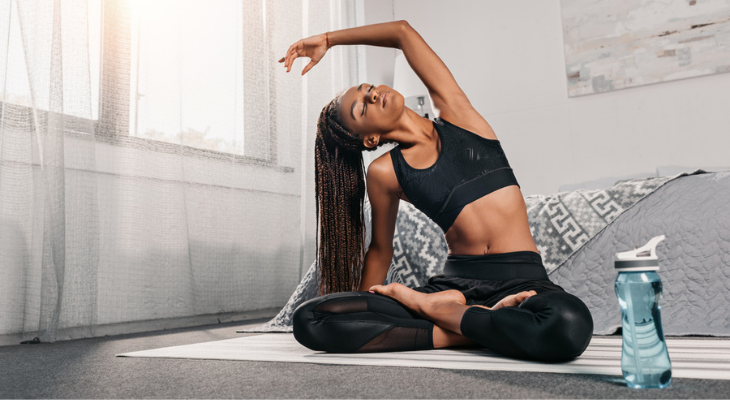
An Active Lifestyle Can Help You Protect Your Eyes
Staying active helps you maintain your weight, keeps your heart healthy, strengthens your bones, and may even help you lower your risk of several serious eye diseases. No matter what your age, increasing your activity level offers a simple way to safeguard your eye health.
The Eye-Health Benefits of an Active Lifestyle
Couch potatoes are at increased risk for many health problems, including conditions that can damage vision. The more you move, the less likely you'll develop glaucoma, macular degeneration, or diabetic retinopathy.
Reducing Your Risk of Glaucoma with Exercise
Glaucoma occurs when the pressure inside your eyes increases. If the pressure remains high, your optic nerve may be damaged. The optic nerve provides a crucial pathway between the eyes and the brain. Damage to the nerves prevents electrical impulses from the eyes from reaching the brain, causing loss of vision.
Aerobic exercise offers a natural way to lower the pressure inside your eyes and improve blood flow to the optic nerves and retinas. Walking, running, biking, swimming, dancing, and other types of exercise that raise your heart rate qualify as aerobic exercise. You don't need to schedule long workouts to enjoy the benefits of exercise. Walking briskly for 20 minutes at least four times a week can help protect your eyes, according to the Glaucoma Research Foundation.
Worried About Macular Degeneration? Increasing Our Activity Level Can Help
The same types of exercise that lower your glaucoma risk can also reduce your risk of developing the wet form of age-related macular degeneration (AMD). Wet AMD occurs when new, abnormal blood vessels begin to grow in the macula, the center part of the retina. The retina is a layer of light-sensing cells at the back of your eye. These vessels can leak fluids or blood and cause blurred vision or blind spots in the central part of your vision.
Researchers at the University of Virginia School of Medicine discovered that regular exercise reduced the overgrowth of blood vessels by up to 45% in mice. Staying active could have the same effect on people too.
Moving More May Also Help You Avoid Retinopathy
Retinopathy also happens due to blood vessel changes in the retina, although, unlike macular degeneration, the changes can affect the entire retina. High blood sugar levels caused by diabetes cause blood vessels in the retina to leak and may also encourage the growth of abnormal vessels. High blood pressure can also cause retinopathy.
Exercising often, in addition to eating a healthy diet, helps you maintain a healthy weight and reduces your risk of developing diabetes and high blood pressure.
No matter how busy your life is, you can probably spare 15 to 20 minutes every day or two to get a little aerobic exercise. If you're exhausted by the time you return home at the end of the day, exercise before you go to work, or put on your sneakers and go for a short walk during your lunch break.
Keep This Warning in Mind if You Have Glaucoma
If you already have glaucoma and are hoping to decrease the pressure inside your eyes with exercise, it may be a good idea to avoid exercises that require you to drop your head. Lowering your head while you exercise may cause pressure inside your eyes to rise.
If you practice yoga, avoid the downward-facing dog, forward bend, plow, and the legs-up-the-wall poses. These poses increased eye pressure in people with and without glaucoma, according to a research study published in PLOS One. For safety's sake, check with your eye doctor before you start a new exercise plan and continue to use the medication prescribed to treat your condition.
Embracing a healthy lifestyle, in addition to visiting your optometrist for annual eye exams, can help you protect your vision. If it's time for your next checkup, get in touch with our office to schedule an appointment.
Sources:
Glaucoma Research Foundation: Can Exercise Lower Eye Pressure?
University of Virginia: Exercise Can Slow or Prevent Vision Loss, UVA Study Suggests, 6/30/20


